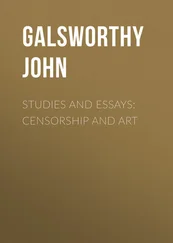Mina Loy - Stories and Essays of Mina Loy
Здесь есть возможность читать онлайн «Mina Loy - Stories and Essays of Mina Loy» весь текст электронной книги совершенно бесплатно (целиком полную версию без сокращений). В некоторых случаях можно слушать аудио, скачать через торрент в формате fb2 и присутствует краткое содержание. Год выпуска: 2011, Издательство: Dalkey Archive Press, Жанр: Современная проза, на английском языке. Описание произведения, (предисловие) а так же отзывы посетителей доступны на портале библиотеки ЛибКат.
- Название:Stories and Essays of Mina Loy
- Автор:
- Издательство:Dalkey Archive Press
- Жанр:
- Год:2011
- ISBN:нет данных
- Рейтинг книги:3 / 5. Голосов: 1
-
Избранное:Добавить в избранное
- Отзывы:
-
Ваша оценка:
- 60
- 1
- 2
- 3
- 4
- 5
Stories and Essays of Mina Loy: краткое содержание, описание и аннотация
Предлагаем к чтению аннотацию, описание, краткое содержание или предисловие (зависит от того, что написал сам автор книги «Stories and Essays of Mina Loy»). Если вы не нашли необходимую информацию о книге — напишите в комментариях, мы постараемся отыскать её.
Stories and Essays of Mina Loy
Stories and Essays of Mina Loy — читать онлайн бесплатно полную книгу (весь текст) целиком
Ниже представлен текст книги, разбитый по страницам. Система сохранения места последней прочитанной страницы, позволяет с удобством читать онлайн бесплатно книгу «Stories and Essays of Mina Loy», без необходимости каждый раз заново искать на чём Вы остановились. Поставьте закладку, и сможете в любой момент перейти на страницу, на которой закончили чтение.
Интервал:
Закладка:
The jailor-mother has disappeared — and the problem of enforcing chastity.
“My dear that ‘difficult’ period with our girls—”
Galahadism for our boys?
They have solved the sex question.
Nothing much need happen all you have to do is to keep ’em jumpin’
And cocktails make fine wooers — but they take all the kick out of love philtres—
If we are to preserve our Civilisation we must avoid climax—
Keep ’em jumpin’—
And jazz is such a stimulus to memory—
right back to when you were nothing but steam in a coal forest—
We can recapitulate our reproductive history—
through the saxophone—
without an effort!
You can remember everything only you don’t know what it was—
Everything’s changed—
But nothing officially— That gives us the slant on political freedom— Everyman his own soul — if he won’t mention it. The Bolshevik — is such a mutt he can’t play —
So he doesn’t want anyone else to — they’ll have Pegasus cleaning out his own stable—
Moral social and intellectual supremacy — is the sense of humour
Well — the King hasn’t got a sense of humour—
No but that’s just our sense of humour—
And Bernard Shaw hasn’t got a sense of—
No but believe me it was one — twenty-five years ago—
Dekobra bagged his Bolshevist—
When their minister crossed himself and muttered his prayers when the peeress proposed to him—
This was long before the war when only the aristocracy explained themselves—
It was about the time that George Moore—
Said dear lady — Asterisk
I should so much like to have you — –
“No?”—
– — well perhaps another cup — thank you!
This stirred the London intelligentsia up—“So brilliantly cas-
ual — ”
And then there were all those eminent beauties
Chewing the cud of the latest divorce scandal—
And Eve got up and stamped
What’s the use of all this humbug?
Tearing that poor woman to shreds
George Moore — has forgotten how to read — he says nobody has got any talent any more — George Moore knows that he knew how to write — because his father was a gentleman — and then he stuffed all his mistresses with “literature”—
None of them ever came forward to explain what really happened — they belonged to the generations of women who suffered in silence—
And now he himself lies buried in the last Bustle—
The highest culture of the upper classes is the study of the lower classes through art.
Creation, simply — was destroyed by the concept Art.
Art is a grimace of creation.
Creation — is the making — –
Art is the aping — —
A critic who should say— Men are as yet so inexperienced that they are in all their most practiced pursuits — ignoramuses—
That even great literature is the supreme confession of ignorance — and that love is a factory — where all employees bungle their jobs—
But take heart — and do not kill that critic — for he will also explain it to you—
That it is not you the individual that is inadequate—
But tradition—
There is certain proof that love is a closed book — for if it were not so— Novels would not be written—
If the engineering of love were acquired—
The sex-psychology of our era would become immediately meaningless
IN MAINE: GREEN’S COLONY
For Maine is clean.
There are no corners where it may hide, space patrols every side of every house, and has not so far separated them that the eye of your neighbour’s window — cannot pierce the eye of your own. There they are always sweeping something away, they are always shaking something out, they trade, they bank, they “ever” prosper in a modest way—
That Satan still — some mischief “may not” find — for idle hands to do.
There is nothing more rigidly occidental than the deportment of Maine—
Yet Maine is always backing away from an onslaught with prohibiting and perpendicular palms — as in a certain oriental dance.
It is certain that Maine has never known it—
Maine has never unbent — to behold itself into the inner mirror of its consciousness.
Maine still wears corsets and starches, whitewashes because of what is underneath.
But Maine has never routed its origin — that impetus that stirred the steaming swamps to life — it has retained the tradition, and swept it off, onto his neighbour’s grass plot.
But I know that when I tried to smoke in the son’s den, which had been converted into a lodger’s room, the eye of the opposite window was fully aware.
The den had a different atmosphere than the rest of the house, sporting a rep drapery, where the mystifications of adolescence positively lurked and a volume of Plutarch’s Lives in which
I read—
“It is dangerous — to incur the enmity of a people who have the gift of song—”
John Straher was about 50—he had his own land, and sent his wife and family away on vacations, but John was not above doing a little sweeping, or a little chopping to oblige a neighbour.
He was so well preserved that it was a foregone conclusion that in another ten years he would blossom into that belated adolescence of the 100 percent clean American, who fumbles at young women with the postponed courage, the desperation of dissolution.
He would probably find his affinity.
It is doubtful however if John Straher would ever grow up to such a word — he had once travelled with the circus as a sword swallower — he could even now — my impression is a little vague — but I believe it was — push a grass blade up one nostril and pull it down the other — he could appreciate — he could drive a fast horse and buggy in a jaunty manner but he could not speak.
This was particularly trying for me as he had chosen me for the confidant of his “clean” passion for Lucy.
Lucy was all that Maine unconsciously potentially typified. She spent her winters raving in sanatoriums — in summer she had the most astounding mixture of the complacency of a cow and the brightness of a robin— In summer although she lived in the going on, fastest set in New York — she was the cleanest thing I have ever met. She always looked as if she were about to sing in the church choir, but in the sanatorium, even the interns were said to have learnt from her.
Maine responded. Although the mind of Maine was differently divided, keeping its sanatorium within and not without, perpetually and not intermittently — it knew at once that Lucy was like itself — quite clean.
Maine adored her — she also was never averse to lending a hand, at a little sweeping, a little shaking out.
John Straher would switch at his horse and chew a wisp with such dynamic meditation that it was painful to set within range of his knit eyebrows—
He would wag his beautiful iron-grey head in horrible perplexity and say,
I do like Lucy, I do like Lucy, gosh how I do like Lucy. She’s a nice girl is Lucy — I never saway a nicer girl than Lucy. She’s a clean girl is Lucy.
His chest would heave with a bewilderment that was tearing it. He would even whip his horse.
Then his eyes would clear with a potential poetry, that filled his conception of Lucy with the fleeing beauty of the laden autumn hedgerows — and his silence. And when he could bear it no longer, he would strike his knee with his twitching corded hand — and say—
I do like Lucy.
A short conversation for a long drive; other men with the same kind of faces had made me their confidant, they had told me how “her” body was a vase of fairest alabaster, and how they had longed to break it and sprinkle the ruby wine of “her” warm young life upon the altar of eternity— One had told how he had clasped her beautiful throat and pressed her head down, down — (nearly) — into the glowing embers of the hearth — because they were both seekers of new sensations.
Читать дальшеИнтервал:
Закладка:
Похожие книги на «Stories and Essays of Mina Loy»
Представляем Вашему вниманию похожие книги на «Stories and Essays of Mina Loy» списком для выбора. Мы отобрали схожую по названию и смыслу литературу в надежде предоставить читателям больше вариантов отыскать новые, интересные, ещё непрочитанные произведения.
Обсуждение, отзывы о книге «Stories and Essays of Mina Loy» и просто собственные мнения читателей. Оставьте ваши комментарии, напишите, что Вы думаете о произведении, его смысле или главных героях. Укажите что конкретно понравилось, а что нет, и почему Вы так считаете.












